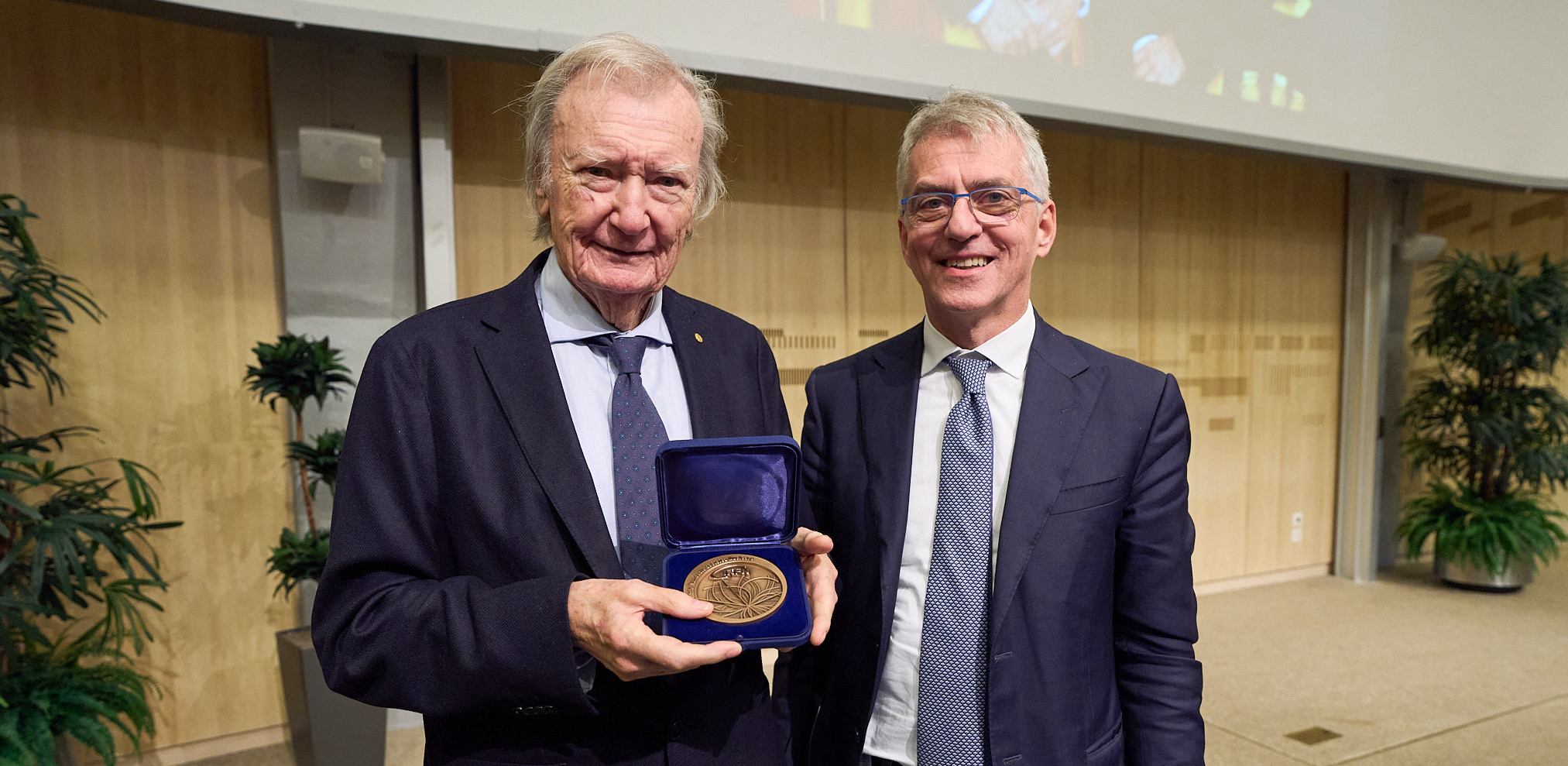On October 18th at CERN, the fundamental physics community celebrated the 90th birthday of Carlo Rubbia and the 40th anniversary of the Nobel Prize awarded to him in 1984 for the discovery, a year earlier, of the W and Z bosons, with a symposium dedicated to his extraordinary scientific career. The celebrations were opened by Fabiola Gianotti, director general of CERN. Memories and testimonies from colleagues of the great scientist followed, tracing his main contributions to fundamental physics: from Chris Llewellyn Smith to Gerardus't Hooft, from Samuel Ting to Lyn Evans, from Luciano Maiani to James Rohlf, from Amalia Ballarino to Hamid Ait Abderrahim, from Hesheng Chen to Antonio Zoccoli who, during the event, awarded the INFN Medal to Carlo Rubbia. This is the prestigious award that INFN confers to those who have made an outstanding contribution to building the history of the Institute.
“This is a double celebration: the 40th anniversary of his Nobel Prize for the discovery of the W and Z bosons and the 90th birthday of Carlo Rubbia, a brilliant scientist who has made his mark on the history of physics”, comments Antonio Zoccoli, INFN president. “It was an honour and pleasure to deliver, on behalf of our entire community, the INFN medal to Carlo. The contribution he brought and continues to bring to fundamental physics and to the scientific activities of our Institute is unique and extraordinary”.
Carlo Rubbia received the Nobel Prize in physics in 1984 for his discovery, the previous year, of the W and Z bosons, the particles mediating the weak interaction. Rubbia's role in this discovery was crucial not only because he led the UA1 experiment to success, but also because he had the decisive intuition for its accomplishment: converting CERN's accelerator at the time, the Super Proton Synchrotron, into a higher-energy collision ring where protons and antiprotons collided.
With his brilliant insights, Rubbia has not only marked the history of CERN and accelerator physics, but also the history of INFN: one for all, the ICARUS experiment, which he designed and dedicated to neutrino physics, operating at the INFN Gran Sasso National Laboratories from 2010 to 2014, and today at Fermilab in the United States where it has been integrated into the Short-Baseline Neutrino programme.
Nonetheless, Carlo Rubbia's career has not only been notable for his scientific contributions: from 1989 to 1993, Rubbia was CERN director general and, in the course of his professional and institutional history, he has received numerous awards and prizes, and has held leading roles and positions of responsibility at many prestigious institutions. He was appointed senator for life of the Italian Republic in 2013.







